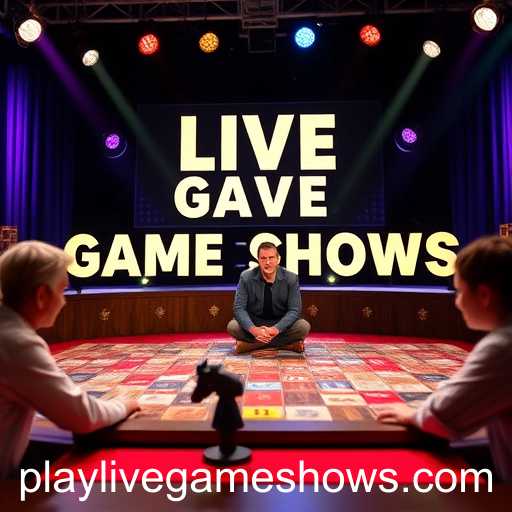Exploring how the traditional board game category is transforming by integrating with live game shows, bringing an exciting and interactive experience to enthusiasts.
In the digital age, the humble board game category has experienced a renaissance of sorts, expanding beyond traditional boundaries and venturing into the dynamic realm of live game shows. This evolution has been fueled by technological advancements and the increasing desire for interactive entertainment experiences, culminating in a unique fusion that is captivating audiences worldwide.
Board games have always been synonymous with family gatherings and friendly competitions. Classics like Monopoly, Scrabble, and chess have stood the test of time, bringing people together across generations. However, the current climate of entertainment is marked by a shift towards more immersive and participatory experiences. This has paved the way for a new genre that combines the strategic elements of board games with the engaging and interactive nature of live game shows.
Platforms hosting board game categories have begun to include "Live Game Shows" as a key feature to capture this trend. This integration allows users not only to play games but also to participate in real-time, live-hosted events where they can interact with the host and fellow participants. The result is an exhilarating hybrid experience where players are not mere spectators but active contributors to the unfolding drama.
Live game shows often harness the competitive spirit inherent in board games, adding elements such as live quizzes, rapid decision-making rounds, and real-time feedback loops that heighten the excitement. Platforms utilizing live streaming technologies provide an endless array of options, from trivia-based games reminiscent of Jeopardy! to those involving strategic thinking inspired by Risk or Catan.
In this interactive setup, traditional board games are reimagined to fit the live format while still retaining their core essence. For instance, a live version of Scrabble may incorporate on-screen word challenges where participants compete to create words under the pressure of a timer, or Monopoly could be re-envisioned as an engaging real estate game show where players make quick real-time decisions to achieve victory.
The appeal of board games as live game shows lies in their ability to engage players beyond the board — they transform the solitary experience of game nights into an energetic community event. Winning in this format often requires quick thinking and participation skills that echo the high-stakes intensity of authentic game shows.
Moreover, this transformation suits the social connectivity desires of contemporary audiences, who are looking for more than standard game play. They crave connections that transcend traditional interactions, allowing them to compete with friends or globally-based strangers alike, sharing a virtual stage with charismatic hosts and like-minded game enthusiasts.
In conclusion, the evolution of board games into live game shows represents a remarkable development in entertainment, bringing the best of strategic thinking and real-time performance to new, digital arenas. As technology continues to advance, it will be fascinating to see how board games further incorporate elements of live interactivity to continue delighting audiences worldwide.




